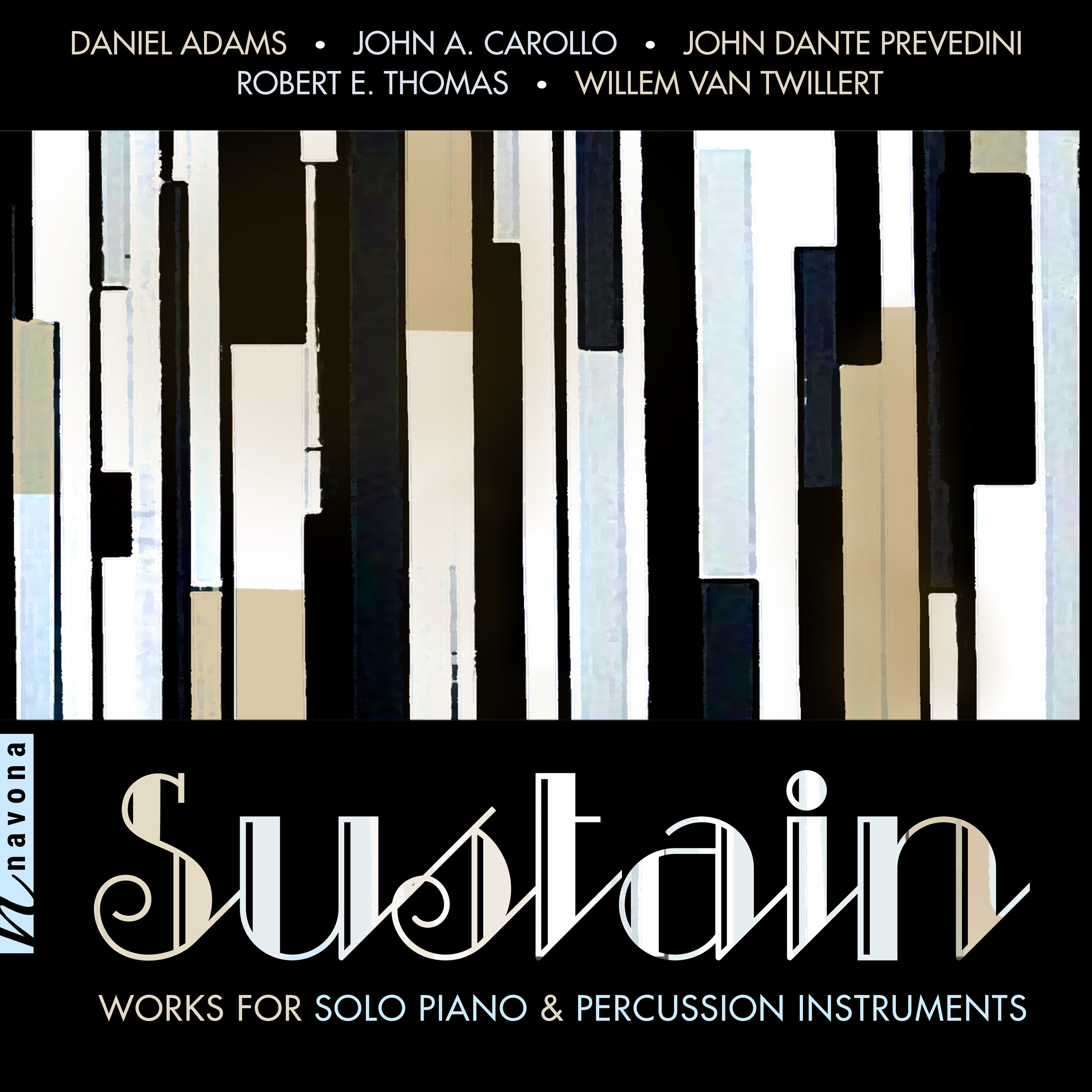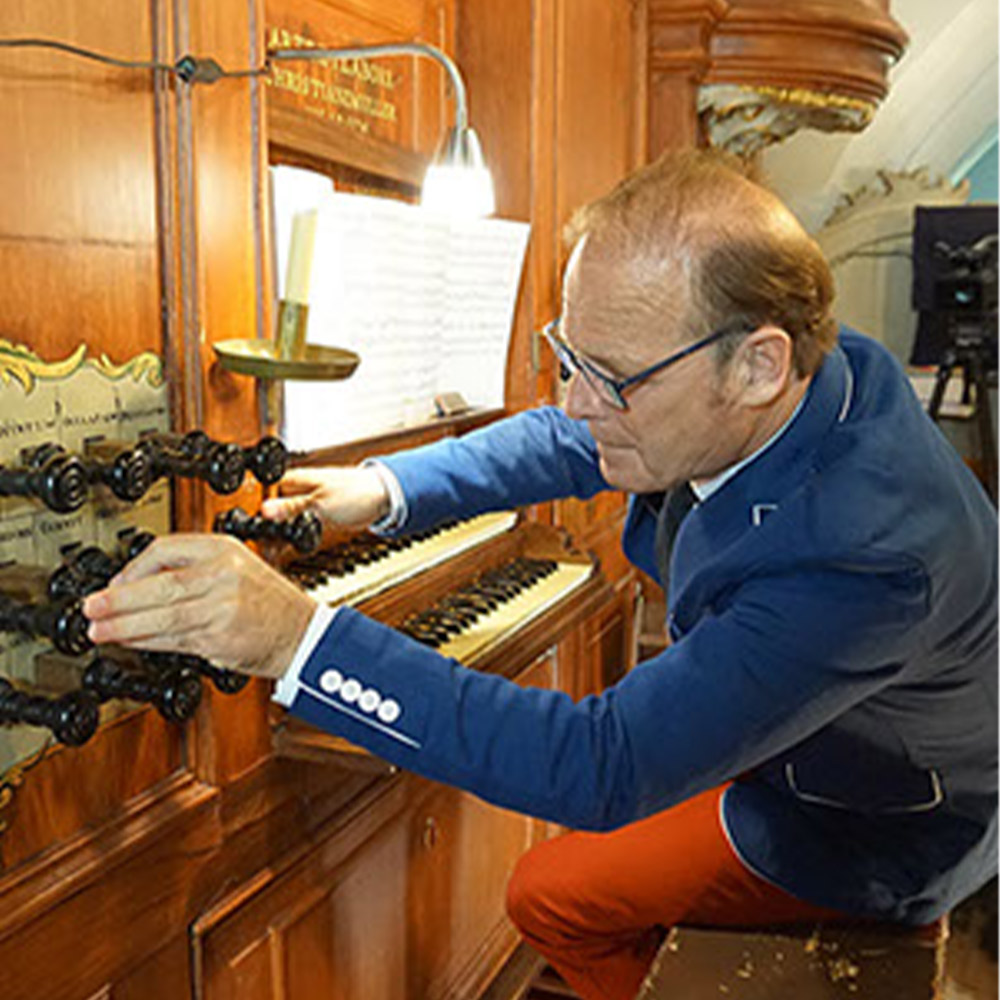
Willem van Twillert studied the organ and piano at the Regional Music School in Amersfoort with Henk Seldenthuis. Starting in 1970, he studied the organ, improvisation, and composition at the Sweelinck Conservatory in Amsterdam with Piet Kee and piano with Willem Brons. In 1979, he obtained a diploma for Church Music and Performing Musician Cum Laude, with a teaching endorsement for improvisation. A scholarship afforded him the opportunity to specialize in historic music between 1978 and 1981, including studies with Gustav Leonhardt (organ). In 1976, Willem was the first Dutch organist to reach the final of the ‘Grand Prix de Chartres’ in France.
Willem is known internationally for his recordings of little-known organ music. From 1976 to 2003, he was the owner-director of a private music school in Bunschoten, and he taught organ at the municipal academy of music in Zwolle between 1980 and 1988. Willem has composed many psalm and choral arrangements. Since 2006 he has also been creating compositions for orchestras and various ensembles including choirs, while studying composition with Henk Alkema. During the Polish International Composers Competition in Mikołów in 2007, Willem won an honorary award with his ‘Sequence for Choir and Organ.’ In 2008, he won the PRIX GASTON LITAIZE for the organ composition PAR LE TEMPS at the Concours de Composition 2008 de la Fondation pour la Musique Comminges in France.
Today, Willem is our featured artist in “The Inside Story,” a blog series exploring the inner workings and personalities of our artists. Read on to discover how Willem got through a performance when his music was knocked to the floor…
Who was your first favorite artist(s) growing up?
George Frideric Handel. At the moment I am reading John Eliot Gardiner’s Music in the Castle of Heaven a fine book from a great musician about one of the greatest composers in history, Johann Sebastian Bach.
When did you realize that you wanted to be an artist?
When I was about 15 years a famous Dutch choir conductor heard me playing the organ. He advised me to become a professional organist and to enter the best conservatory in Holland, which was in Amsterdam. My mother was against it because she thought Amsterdam was not the best city to study. Fortunately I passed the exam successfully. Piet Kee was my organ professor and I studied in Amsterdam from 1971-81.
What was your most unusual performance, or the most embarrassing thing that happened to you during a performance?
The moment the music fell from the desk on the floor. I managed to play ahead until the music was placed again on my desk, but it was on the wrong page. Anyway, with some improvisation the audience did not noticed it.
What is your guilty pleasure?
I have no guilty pleasures. I do like pop music like Queen, Abba, Dream Theater, etc.
If you could make a living at any job in the world, what would that job be?
Being a professional musician again.
If you could spend creative time anywhere in the world, where would it be and why?
In Hoogland, a small village near Amersfoort in Holland: that is the place where I live and work. I am totally happy in that small part of the universe.
What does this album mean to you personally?
Wow, that is a difficult question…well, perhaps I would like for it to just let the audience know that there is all kind of music out there, in miscellaneous styles.
I hope my music has a specific style, namely mine. But on the other hand I think that is perhaps too much asked because we artists all stand on the shoulders of our predecessors.
My two piano compositions are now for sale and in the public domain so to speak. So, thanks to PARMA Recordings, everyone can hear these compositions, and that makes me happy.
Is there a specific feeling that you would like communicated to audiences in this work?
Not a specific feeling. I would like audiences to just listen to my music and try to love it. I do believe that music must have a personal style but that is hard to achieve. I hope I have succeeded. In my case my music is not difficult to listen to.

Andante for Antoinette and Adagio for Piano are available on SUSTAIN for streaming and purchase through Navona Records. Click here to explore this new album.

Willem Van Twillert (The Netherlands, b. 1952) studied the organ and piano at the Regional Music School in Amersfoort with Henk Seldenthuis. Starting in 1970, he studied the organ, improvisation, and composition at the Sweelinck Conservatory in Amsterdam with Piet Kee and piano with Willem Brons. In 1975 he commenced a 3-year course of orchestral conducting studies with the Dutch orchestra conductor Anton Kersjes. In 1979, he obtained a diploma for Church Music and Performing Musician Cum Laude, with a teaching-endorsement for improvisation. A scholarship afforded him the opportunity to specialize in historic music between 1978 and 1981, including studies with Gustav Leonhardt (organ). In 1976, van Twillert was the first Dutch organist to reach the final of the 'Grand Prix de Chartres' in France.
